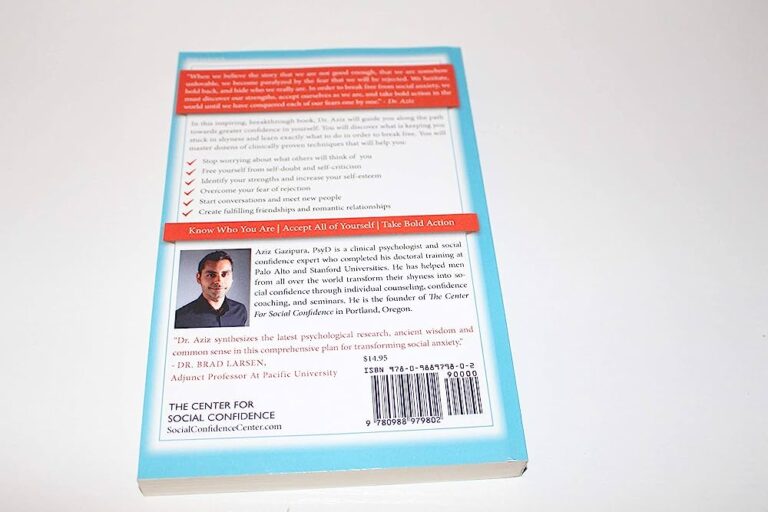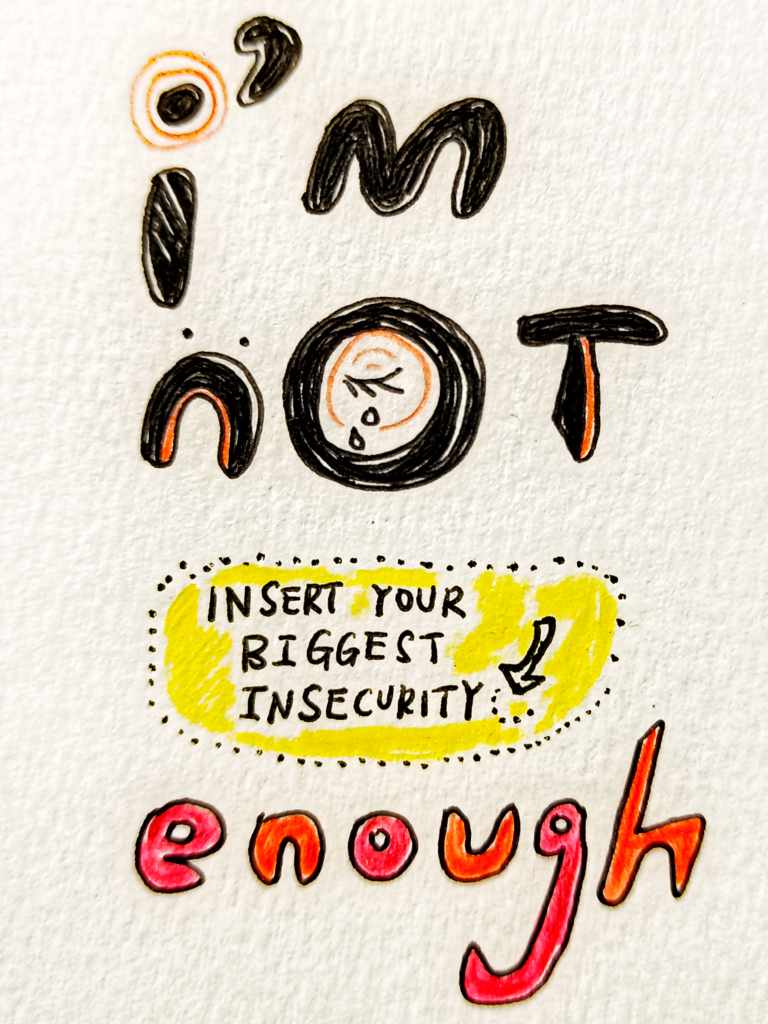Review: ⭐⭐⭐⭐(I dog-eared and underlined multiple pages)
This book is for…
While a lot of Dr. Aziz’s advice is relevant to anyone who has social anxiety, I’d particularly recommend this to socially anxious guys who want to date and make friends, as it’s written with them in mind (which makes sense, given Dr. Aziz’s personal experiences).
What makes the author qualified to write this book?
Dr. Aziz Gazipura is a Stanford-educated clinical psychologist and the founder of The Center For Social Confidence.
After experiencing social anxiety for two decades, he signed up for therapy and coaching, did a variety of exposure challenges…and married the woman of his dreams!
This was the first self-help book on social anxiety that I got, and when I reread it recently, it stood the test of time well! Here are three insights that I found especially potent:
Insight #1: The secret propaganda campaign of “not good enough”
Socially anxious folks like me often run a propaganda campaign against ourselves. It’s almost as if we want ourselves to lose.
The message — the belief — at the core of the campaign is this:
“I’m not good enough”. Or, “I’m broken” or I’m damaged”.
And when this belief is repeated in your mind every single day, you’ll start believing in it and you’ll find any evidence that remotely supports the belief.
“The material in a propaganda campaign does not have to be true. It just has to be repeated loud enough, long enough, and consistently enough, and it will become convincing through repetition alone.
And because you don’t feel good enough, you might…
- Assume and avoid rejection (thanks to your inner critic that finds more and more evidence that you suck)
- Overcompensate in existing relationships by being extra nice, generous, or agreeable.
The inner critic bit was solid but standard social anxiety advice. Here’s what I found to be much more compelling…
Insight #2: Are you giving from a place of fear or love?
When you feel that you’re not good enough, you will likely downplay or dismiss your feelings, and treat other people’s feelings as way more important.
This leads to you being overly accommodating. Here are a few signs to watch out for:
- Do you do what you think they want (before they even say anything)?
- Do you say yes even when you don’t want to?
- Do you agree when you actually disagree?
- Do you give more than you want to?
- Do you have trouble voicing out your needs and preferences?
But how can you stop being overly accommodating?
Learn how to a) embrace disappointment b) ask for what you want.
Insight #3: Disappointment is necessary for healthy relationships
Alright, this is hands-down my favorite insight from the book…
Disappointment can feel horrifying for the socially anxious. I’ll speak for myself: when a loved one seems bummed, I would often go into firefighting mode and scramble to make them feel better.
But here’s the truth for even the best relationships:
You won’t be aligned with the other person all the time, and there will be disappointment — and that’s OK!
And really, you can’t fix or control someone else’s feelings. (This isn’t sci-fi, my friend.) You’re not responsible for their feelings.
This is not about being an asshole, btw. This is about giving them space to feel difficult emotions. So, let them have their feelings. Let them be disappointed.
As Dr. Aziz beautifully said…
“Disappointment does not mean the end of a relationship. Rather, it is just another emotion that is part of being a human in connection to others. It can be incredibly powerful and healing to allow yourself to disappoint someone and then realize that they still love and care about you.
Repeatedly experiencing this reality can help you start to know on a deep level that you’re indeed lovable and worthwhile as you are, even with your human flaws and shortcomings.”
Should you buy the book or not?
Maybe. The ideas that Dr. Aziz shared are universally applicable to anyone who has social anxiety, but socially anxious guys like me will find it most helpful, given the tone of voice and examples.
(For something more general, I’d get How To Be Yourself by Dr. Ellen Hendriksen. It touches on adult friendships too.)
Now, while I’ve done the 80/20 — picked out insights that I found especially impactful and shared them with you — the reality is that Dr. Aziz wrote about other ideas and tips that you will benefit from too.
Here are a few insights I loved but didn’t get to cover in this summary:
- 10+ questions to challenge your inner critic (rather than letting it boss you around and tell you what to do)
- Why being selfish is a good thing (it actually makes you a kinder and better person in relationships)
- Three ways to soften the pain of rejection (rejection hurts, but here’s what you can do about it)
If you like the summary and want to learn more from Dr. Aziz, you can pick up the book here 👇
The Solution To Social Anxiety:
Break Free From The Shyness That Holds You Back
Note: If you buy the book via my link, I will earn a lil’ affiliate fee (less than a dollar for the average $20 book). I only recommend books that I’ve read and loved.
Related articles


